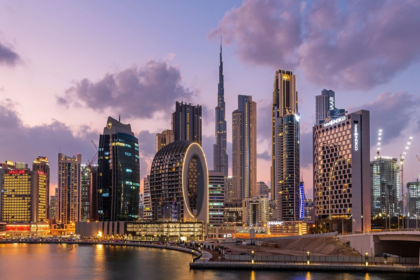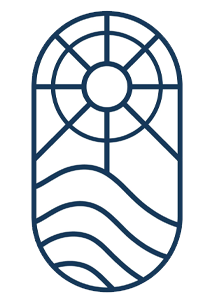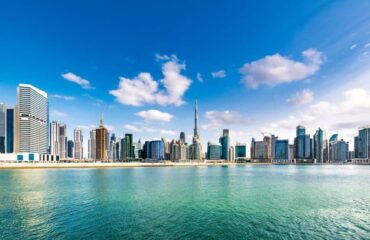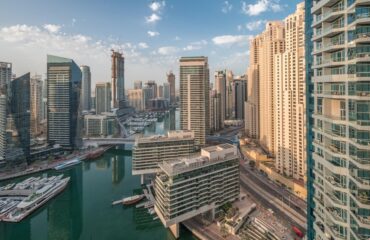
Dubai, with its vibrant culture, stunning architecture, and thriving economy, has become a magnet for expats from around the world, including Canadians. Understanding the process and what to expect is crucial for those considering moving from Canada to Dubai. This guide will walk you through every step of your journey, ensuring a smooth and stress-free transition into your new Dubai life.
Introduction to Dubai
Renowned for its tax-free income, diverse job opportunities, and high standard of living, making it an attractive destination for relocating to Dubai from Canada. The city offers a unique blend of traditional Middle Eastern culture and modern amenities, providing an exciting lifestyle for expats.
Why move to Dubai?
There are many reasons why people move to Dubai at different stages of their lives. Single people, couples, and families with children all find something that draws them to Dubai, the center of the Middle East. Here are some examples:
- Economic opportunities: Dubai’s business-friendly environment and strategic location make it a hub for various industries, offering numerous employment opportunities in Dubai for Canadians.
- Cultural diversity: The city is a melting pot of cultures, allowing Canadian expats to experience a diverse and inclusive community.
- Luxury lifestyle: Dubai is famous for its luxurious lifestyle, with world-class amenities and infrastructure.
Visa requirements for Canadians
To relocate to Dubai from Canada, Canadians need to secure a residence visa and work permit. The residence visa, often referred to as an employment or sponsorship visa, is typically obtained through a Dubai-based employer who acts as the sponsor.
Types of visas
There are many different types of visas available for expats planning to move to Dubai. Here are two that would be a likely option for Canadians moving to Dubai:
- Employment visa: Required for those who wish to work in Dubai, this visa is usually sponsored by an employer and includes a work permit issued by the Ministry of Human Resources and Emiratisation (MOHRE).
- Investor visa: For those planning to start or invest in a business in Dubai, this visa allows you to live in the UAE and enter/exit freely during its validity.
Visa application process for the UAE
The visa application process typically involves a couple of different stages:
- Medical examinations: Required as part of the visa application process.
- Educational certificates: Must be submitted to prove qualifications.
- Employment criteria: Specific requirements set by the relevant authorities must be met.
Cost of living in Dubai vs. Canada
The cost of living in Dubai vs. Canada varies significantly, depending on lifestyle and location. Generally, Dubai offers a slightly lower cost of living compared to major Canadian cities like Toronto. Here’s a comparison of some common expenses:
| Item | Cost in Dubai | Cost in Toronto |
| Meal at an inexpensive eatery | AED 40 (CAD $15) | CAD $26 |
| 3-course meal for 2 people at a mid-range eatery | AED 250 (CAD $93) | CAD $109 |
| 1 liter of milk | AED 7.31 (CAD $2.76) | CAD $4.27 |
| 1 liter of gas | AED 3 (CAD $1.13) | CAD $1.58 |
| Annual tuition at an international primary school | AED 49,622 (CAD $18,746) | CAD $24,636 |
| 1 pair of jeans | AED 216 (CAD $81) | CAD $81 |
| Monthly rent for a 1-bedroom apartment in the city center | AED 7,892 (CAD $2,981) | CAD $2,503 |
| Monthly rent for a 3-bedroom apartment outside of the city center | AED 9,573 (CAD $3,616) | CAD $3,903 |
Overall, consumer prices, including rent, are generally lower in Dubai compared to Toronto, making it an attractive option for those looking to reduce living expenses.
Best neighborhoods in Dubai for Canadian expats
Dubai offers a variety of vibrant neighborhoods that cater to different lifestyles. Here are some of the best neighborhoods in Dubai for Canadian expats:
- Dubai Marina: Known for its stunning waterfront views and lively nightlife, Dubai Marina is a top choice for expats seeking a cosmopolitan lifestyle.
- Downtown Dubai: Offers proximity to major business hubs and iconic landmarks like the Burj Khalifa, makes Downtown Dubai ideal for professionals.
- Palm Jumeirah: Provides a luxurious beachside lifestyle with easy access to amenities and entertainment options, the Palm Jumeira, a fascinating manmade island, is also a wonderful place for Canadians to call home.
Employment opportunities in Dubai for Canadians
Dubai presents numerous employment opportunities in Dubai for Canadians, particularly in sectors like finance, technology, and healthcare. The city’s thriving economy and business-friendly environment make it an attractive destination for professionals seeking career advancement.
Key industries for employment in Dubai
While Dubai is a thriving economic hub, there are some industries where employment is almost guaranteed:
- Finance: Dubai is a major financial hub, offering opportunities in banking, investment, and asset management.
- Technology: The city is rapidly expanding its tech sector, with opportunities in software development, cybersecurity, and more.
- Healthcare: Dubai’s healthcare sector is growing, with a focus on high-quality medical services and research.
Job search tips
The UAE is a comparatively small environment, and networking can be a powerful tool for finding employment, among other avenues. Here are a couple of options for Canadians looking for jobs in Dubai:
- Networking: Use platforms like LinkedIn to connect with professionals in your industry.
- Job fairs: Attend job fairs and recruitment events to meet potential employers.
- Recruitment agencies: Consider working with agencies specialising in expat placements.
Cultural differences Between Canada and Dubai
When considering a move to another country, especially one where the culture is so different, understanding cultural differences between Canada and Dubai is essential for a smooth transition. Dubai is a conservative society with strong Islamic traditions, which can be quite different from Canada’s multicultural and liberal environment.
Social norms and customs
Dubai is one of the more multicultural cities in the Middle East, but it is still a major city in an Islamic country. Before moving there, it’s important to understand some key social norms and customs:
- Dress code: Both men and women should wear clothing that covers their shoulders and knees in most public spaces, but Western women are not generally expected to cover their hair.
- Communication: Be respectful and polite in interactions, avoiding public displays of affection, especially between men and women.
- Ramadan: Be mindful of fasting hours and traditions during Ramadan. The holy month of Ramadan is at a slightly different time each year, and it is a time of spiritual reflection and religious observances for much of the population of the UAE.
Language and communication
While Arabic is the official language, English is widely spoken in Dubai. However, learning basic Arabic phrases can enhance your experience and interactions with locals.
Healthcare in Dubai for Canadian residents
Dubai offers a high-quality healthcare system for Canadian residents, with modern facilities and well-trained medical professionals. However, health insurance is essential for expats, as it is not provided by the government for non-citizens.
Health insurance options
Coming from Canada, expats can be surprised by the healthcare insurance options in Dubai. While healthcare in Canada is decentralised and publically funded, in Dubai there are far more private options available. Here are the two main options for Canadian expats living in Dubai:
- Private insurance: Most employers offer health insurance as part of employment packages. Otherwise, you can purchase private insurance plans.
- Government hospitals: While generally less expensive, government hospitals may have longer wait times and less comprehensive services.
Education options in Dubai for Canadian families
For Canadian families moving to Dubai, there are numerous education options available, including international schools that offer curricula familiar to Canadians. Generally, the school year runs from August or September through to May or June of the following year, as it does in most northern hemisphere countries, which makes moving to Dubai easier for Canadian families.
Types of schools
Dubai is home to literally hundreds of schools of different sizes, offering different curricula, aimed at students from different backgrounds, languages, and cultures. Most families are able to find a school that appeals to them, and expatriate families tend to lean towards international and private schools. While there are public schools available, they tend to be Arabic-speaking and aimed primarily at Emirati students.
- International schools: Offer curricula like the IB, British, or American systems, which are popular among expat families.
- Private schools: Provide a range of curricula and often have smaller class sizes.
- Public schools: Primarily for Emirati students, though some may accept expats.
Admission processes
Schools have quite an involved admissions process, often starting during the school year for the following school year. Here are a few of the main steps:
- Application forms: Submit applications well in advance, as spaces can be limited.
- Entrance exams: Some schools may require entrance exams to assess student abilities.
- Interviews: Parents and students may be required to attend interviews as part of the admission process.
Conclusion
Moving from Canada to Dubai can be a rewarding experience, offering a unique blend of cultural richness and economic opportunities. By understanding Dubai visa requirements for Canadians, comparing the cost of living in Dubai vs. Canada, and exploring employment opportunities in Dubai for Canadians, you can make an informed decision about your move.Whether you are seeking a new career path, a luxurious lifestyle, or simply a change of scenery, Dubai has something to offer. With its vibrant expat community and welcoming environment, Canadian expats in Dubai can easily find their place in this bustling city.








